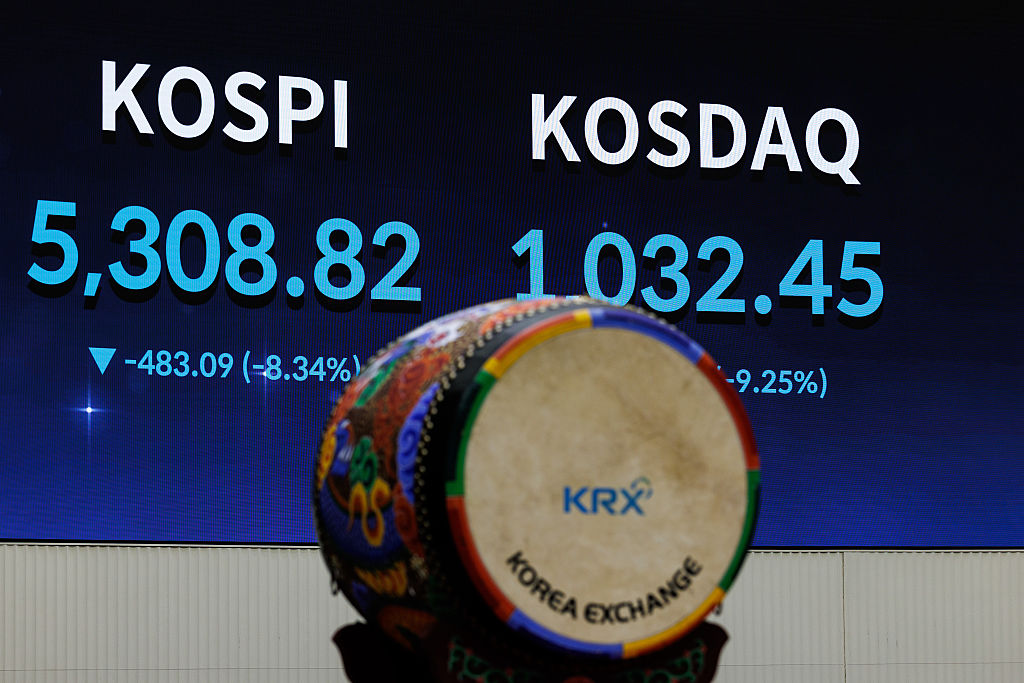Cash in on a profitable end to the oil era
Cheap oil stocks could still make a lot of money and carve out a new future before oil demand peaks


Get the latest financial news, insights and expert analysis from our award-winning MoneyWeek team, to help you understand what really matters when it comes to your finances.
You are now subscribed
Your newsletter sign-up was successful
Want to add more newsletters?
Everybody hates oil stocks. Income seekers are scared by the dividend cuts. Sustainable investors don’t like the pollution. Momentum traders aren’t interested in anything that’s not tech. And everybody else looks at the red ink in recent results and steers clear. So it’s understandable that most of the oil majors – BP, Chevron, ConocoPhillips, Eni, Equinor (formerly Statoil), ExxonMobil, Royal Dutch Shell and Total – are down 40%-60% this year.
With yields of 5% or more even after cuts, these firms look cheap if the oil price recovers once Covid-19 passes. Crude is $40 per barrel now, but was $60-$70 last year, at which point the majors are very profitable. The strongest argument against them is that oil is on its way out faster than expected. BP now forecasts that demand will peak around 2030 and could then drop rapidly. The world would still need some oil, but potential supply would far exceed demand. That would mean low prices, so low-cost sources (eg, Saudi Arabia) might drive out other producers.
This is a very plausible scenario. And yet if the majors respond to the implications, they could still be excellent investments.
Try 6 free issues of MoneyWeek today
Get unparalleled financial insight, analysis and expert opinion you can profit from.

Sign up to Money Morning
Don't miss the latest investment and personal finances news, market analysis, plus money-saving tips with our free twice-daily newsletter
Don't miss the latest investment and personal finances news, market analysis, plus money-saving tips with our free twice-daily newsletter
Dwindling reserves
All these firms have limited reserves, ranging from eight years of production for Shell to 17 for Exxon. If they want to keep producing oil, they must constantly invest in new reserves. And in all the parts of the world that the majors can access, new fields are harder to find and produce than their existing ones. Between 2008 and 2017, the five biggest – BP, Chevron, Exxon, Shell and Total – generated $1.5trn in cash, but reinvested four-fifths of it, according to Bloomberg.
If demand will shrink in a decade, a better strategy may be to stop investing in finding new reserves and run down existing ones to maximise free cash flow (see below) before demand peaks. The cash can be paid out as dividends, invested in new energy – such as offshore wind – or a mix of both.
The European majors appear to be moving in this direction. The US ones – always sceptical about an end to the oil era – are not. It’s possible that both strategies may work out – the last major still pumping oil could earn good returns.
There are risks. Crude might not get back to the $60-$70 range needed to produce lots of cash while running down reserves. Investing in non-oil projects may deliver a poor return. A return to high oil prices could tempt them to resume investing in expensive new fields. But these valuations are pricing in a lot of doubt. Oil majors feel a little like tobacco did in 2000. Out of favour, but with more cash and better prospects than tech-crazed investors think.
I wish I knew what free cash flow was, but I’m too embarrassed to ask
Free cash flow (FCF) measures a firm’s ability to generate spare cash that can be returned to shareholders as dividends or share buybacks, or used to pay down debts. FCF shows how much money is left over after all the costs of doing business and making capital investments.
Free cash flow is important because a business needs to generate excess cash if it’s going to reward investors. If the amount of cash it produces is little more than it needs to survive, it’s not going to be a good long-term investment. In addition, cash flow is harder to fake than accounting profits (net income or earnings per share) so can provide a useful check on whether the company is doing as well as it claims.
How you define FCF depends on whether you are an investor in debt (bonds or loans) or in equity (shares), and whether you want to carry out a more precise calculation or a rough estimate. The most common approach is to take earnings before interest and tax from the income statement, add back depreciation and amortisation (these are non-cash accounting measures that allow for the fact that the value of assets reduce over time), and subtract capital expenditure, changes in working capital and taxes. Alternatively, take cash from operations from the cash flow statement, add back the after-tax cost of interest and subtract capital expenditure.
This gives free cash flow to the firm (FCFF), which is what concerns a debt investor. Equity investors get what’s left over after paying creditors, so they may also look at free cash flow to equity (FCFE), which deducts the after-tax cost of interest and net repayment of debt (be alert for situations where this is being distorted by a big increase in borrowing).
Free cash flow is used in valuation tools such as free cash flow yield (FCF per share ÷ share price), as well as more complex discounted cash flow models. You can also look at profitability metrics such as the free cash flow margin (FCF ÷ sales).
Get the latest financial news, insights and expert analysis from our award-winning MoneyWeek team, to help you understand what really matters when it comes to your finances.

Cris Sholt Heaton is the contributing editor for MoneyWeek.
He is an investment analyst and writer who has been contributing to MoneyWeek since 2006 and was managing editor of the magazine between 2016 and 2018. He is experienced in covering international investing, believing many investors still focus too much on their home markets and that it pays to take advantage of all the opportunities the world offers.
He often writes about Asian equities, international income and global asset allocation.
-
 One million more pensioners set to pay income tax in 2031 – how to lower your bill
One million more pensioners set to pay income tax in 2031 – how to lower your billHundreds of thousands of pensioners will be dragged into paying income tax due to an ongoing freeze to tax bands, forecasts suggest
-
 Stock market circuit breaker: Why did Korean shares pause trading?
Stock market circuit breaker: Why did Korean shares pause trading?The fallout from the conflict in the Middle East hit the Korean stock market on 4 March, with shares forced to temporarily stop trading. What is a stock market circuit breaker, and why did the KOSPI trigger one?
-
 Three Indian stocks poised to profit
Three Indian stocks poised to profitIndian stocks are making waves. Here, professional investor Gaurav Narain of the India Capital Growth Fund highlights three of his favourites
-
 UK small-cap stocks ‘are ready to run’
UK small-cap stocks ‘are ready to run’Opinion UK small-cap stocks could be set for a multi-year bull market, with recent strong performance outstripping the large-cap indices
-
 Hints of a private credit crisis rattle investors
Hints of a private credit crisis rattle investorsThere are similarities to 2007 in private credit. Investors shouldn’t panic, but they should be alert to the possibility of a crash.
-
 Investing in Taiwan: profit from the rise of Asia’s Silicon Valley
Investing in Taiwan: profit from the rise of Asia’s Silicon ValleyTaiwan has become a technology manufacturing powerhouse. Smart investors should buy in now, says Matthew Partridge
-
 ‘Why you should mix bitcoin and gold’
‘Why you should mix bitcoin and gold’Opinion Bitcoin and gold are both monetary assets and tend to move in opposite directions. Here's why you should hold both
-
 Invest in the beauty industry as it takes on a new look
Invest in the beauty industry as it takes on a new lookThe beauty industry is proving resilient in troubled times, helped by its ability to shape new trends, says Maryam Cockar
-
 Should you invest in energy provider SSE?
Should you invest in energy provider SSE?Energy provider SSE is going for growth and looks reasonably valued. Should you invest?
-
 Has the market misjudged Relx?
Has the market misjudged Relx?Relx shares fell on fears that AI was about to eat its lunch, but the firm remains well placed to thrive